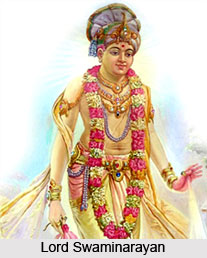 Vachanamrit of Swaminarayan has been well preserved by his disciples. They contain the profound wisdom of Swaminnarayan on subjects pertaining to renunciation, devotion, anger, lust, delusion, dharma, jiva, Ishwar, types of faith, soul and body, the form of God, tattvas, salvation and others. The discourses that were recorded were personally approved by Swaminarayan to preserve their purity and authenticity. Some of his discourses illustrate on the ways of approaching our life.
Vachanamrit of Swaminarayan has been well preserved by his disciples. They contain the profound wisdom of Swaminnarayan on subjects pertaining to renunciation, devotion, anger, lust, delusion, dharma, jiva, Ishwar, types of faith, soul and body, the form of God, tattvas, salvation and others. The discourses that were recorded were personally approved by Swaminarayan to preserve their purity and authenticity. Some of his discourses illustrate on the ways of approaching our life.
Lust: According to Swaminarayan feeling and behaving totally as Atma, observance of eight fold celibacy and observance of five injunctions help in realizing the glory of God in the form of a human. All these would help one to eradicate carnal desires.
Happiness: Swaminarayan says that a true devotee should always be in a happy mood and should offer devotion to God in a cheerful way. In spite of all problems and unfavorable factors, he should never loose his happy mood
Attachment: Swaminarayan in his discourse says that one who follows Dharma completely and also has the knowledge of God should yet be avoided if he has attachment to worldly objects.
Mind: According to Swaminarayan when worldly thoughts arise in the mind they cannot be suppressed. At that moment one should leave meditation at once and chant the `Swaminarayan` mantra. He can also pray to God as well as pray to such great saints like Muktanand Swami.
Devotion: Swaminarayan says that Bhakti develops in the heart when one realizes the greatness of the various Vibhutis of God. He says that one should realize the divine Leelas of god in the state of creation, sustenance and destruction. He also stressed upon the dedication of towards God.
This article is a stub. You can enrich by adding more information to it. Send your Write Up to content@indianetzone.com









